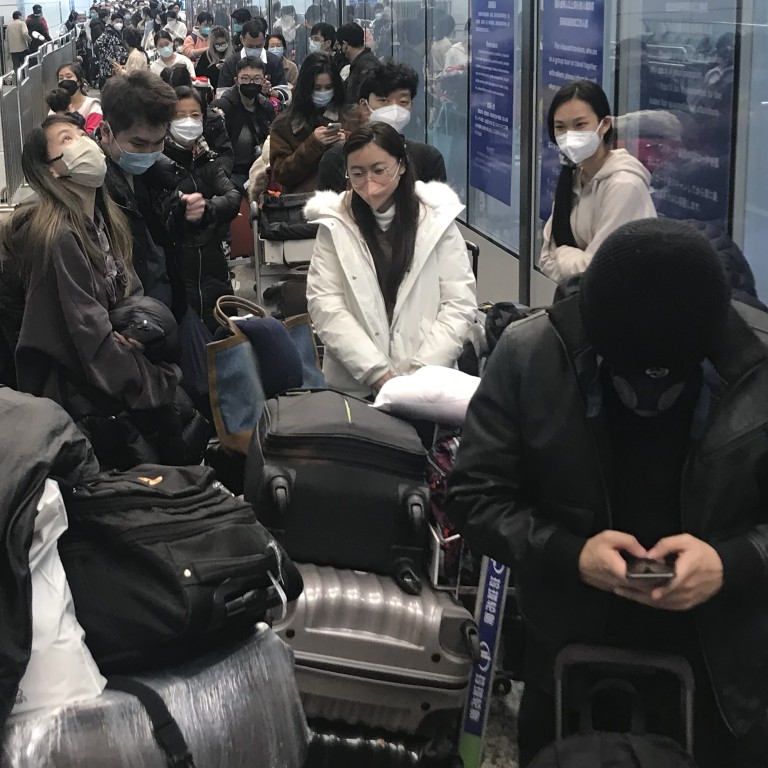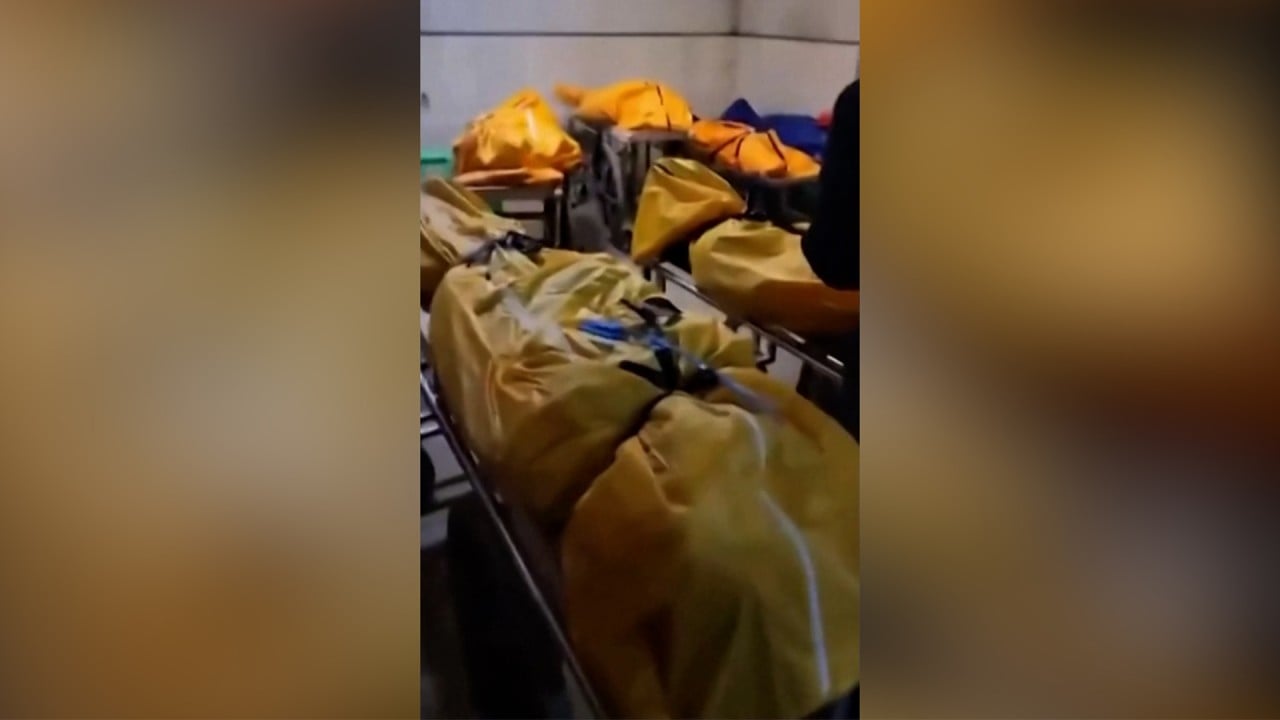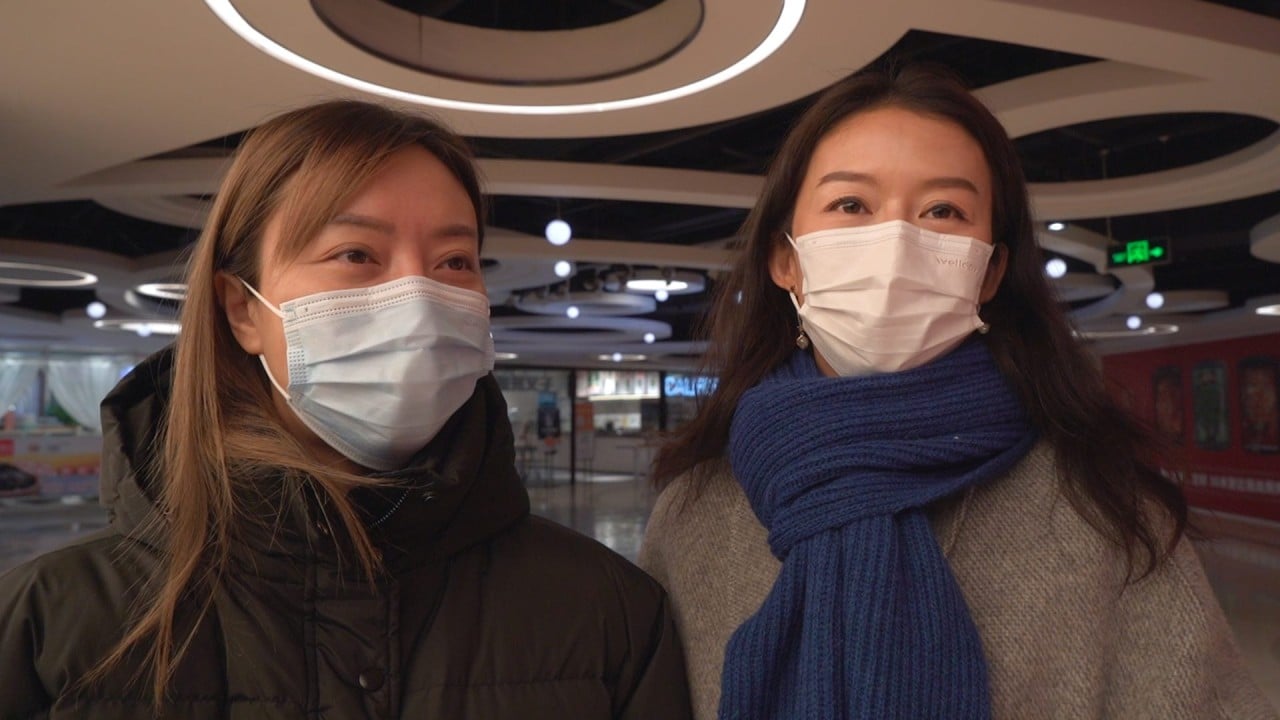
Travel to China to get easier from January 8 as Covid barriers come down
- State Council announces travel changes that will ease travel into the country and is expected to prompt a rebound in Chinese heading abroad
- Hospitals around the country told to boost intensive care capacity as part of Beijing’s ‘smooth transition’ away from zero-Covid
From January 8, travellers to China will only need to present a negative PCR test result from the previous 48 hours at customs to enter the country, the State Council announced on Monday night.
Travellers will also no longer have to apply to Chinese embassies for a health code before departure.
Even if passengers present with a fever at customs, they can take a rapid antigen test and if positive with mild symptoms, can isolate at home. Travellers with severe symptoms will be encouraged to seek medical treatment.
Limits on the number of international passenger flights will be scrapped. However, passengers must still wear masks during their flight.
The changes are part of the downgraded response to be implemented from January 8.
Beijing announced the changes late on Monday night, three years after the disease emerged in the central city of Wuhan, prompting a stringent response that isolated China from the rest of the world.
Beijing defended the country’s strong stance in the face of five global Covid-19 waves, which it said drastically reduced severe disease and deaths while gaining time to develop vaccines, drugs and medical resources.
“It’s a miracle of prevention and control in the history of the human struggle against diseases,” the State Council said in a guideline on the shift in response.
‘Hope is in front of us’: China’s travel sector looks past misfortune of 2022
The downgrade, based on lower pathogenicity of the virus that causes Covid-19, will manage the disease in the same category of infectious diseases as HIV and viral hepatitis. And the the focus now will be “preventing serious illnesses” to “maximise the protection of people’s lives and health and minimise the impact of the epidemic on economic and social development”, according to the guidelines.
Hospitals at the county level or above have been told to prepare a stock of traditional Chinese medicines, antivirals and other drugs to relieve the symptoms of fever and cough that can last three months.
Investment in medical resources, especially hospital beds and in intensive care, must be stepped up, the State Council said in its advice to local governments.
It stated that 20 per cent of hospitals treating Covid-19 should be able to convert to intensive care beds, and all lower level hospitals and children’s hospitals must establish intensive care wards. The highest level hospitals must improve resources and allocate health workers for intensive care to ensure capacity could double within 24 hours.
China stocks jump as Beijing downgrades Covid to reopen borders on January 8
Liang Wannian, head of the expert panel overseeing the national Covid-19 response, said the adjustment did not mean completely abandoning Covid-19 control but instead it was preparation for a smooth transition. At the same time, it was important to be confident about the new response.
“Some parts of the country have survived or are surviving the impact of the first wave of the epidemic and there is no large-scale serious illness or deaths as we feared. This shows we need to have confidence,” Liang told state broadcaster China Central Television.
But China needed to step up surveillance of the disease and mutation of the virus given the fast spread of the disease within a short period of time, he said.



